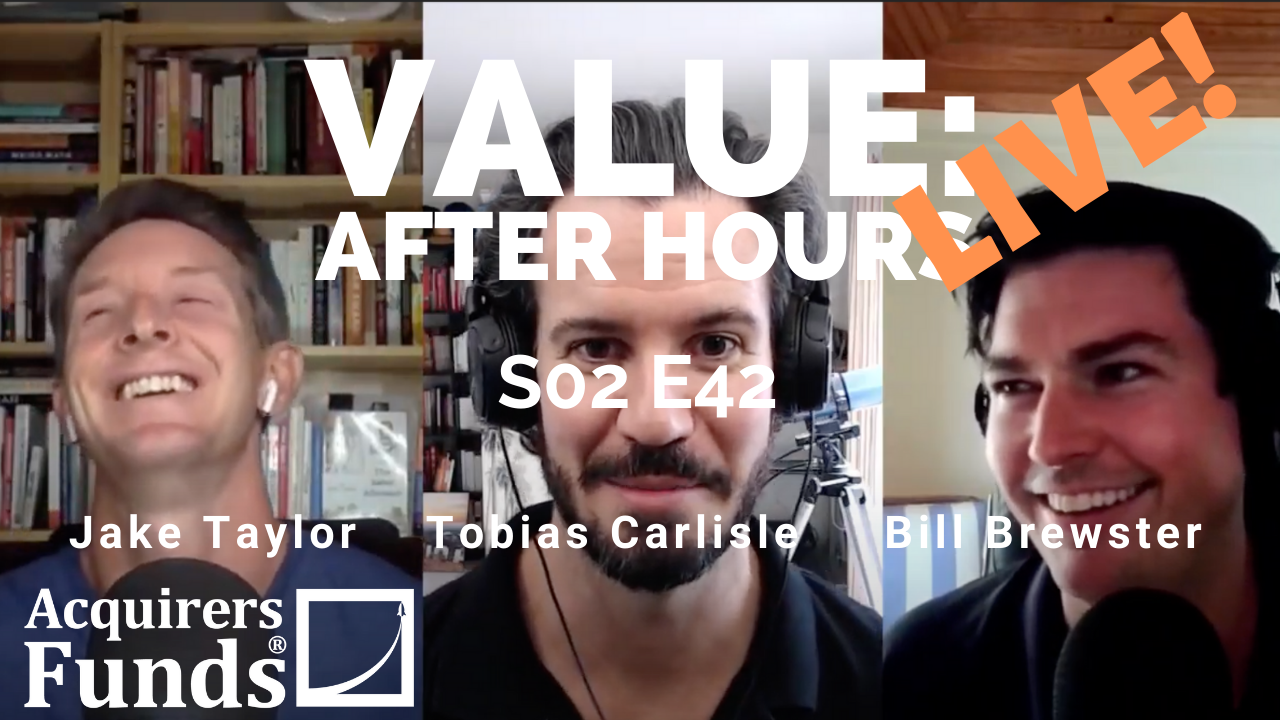During their recent episode of the VALUE: After Hours Podcast, Taylor, Brewster, and Carlisle discussed UFO Cults – When Prophecy Fails. Here’s an excerpt from the episode:
Jake: One of the things I was thinking about– well, let’s talk about the UFO part of it, and this ties back in a little bit too to Bill. So, this guy named Leon Festinger, I think that’s how he says it. He studied cult members, and they had these– people were waiting for this UFO to come. And they had a date, and the date ends up coming and then passing. Obviously, they didn’t get picked up by the UFO and taken anywhere. He studied these people and interviewed a bunch of them. And this is actually where the work on cognitive dissonance came from. He found that people would claim that the event still happened, but that we just couldn’t figure out– we just can’t see that it happened. It becomes a non-falsifiable hypothesis.
What they say is that oftentimes what happens is that there’s a shift to more sophisticated and nebulous models when someone who is personally and ideologically committed to a theoretical approach is clearly failing. So, what happens is if whatever you’re doing is clearly failing, you look for– it becomes more sophisticated, it becomes more nebulous. We start blaming intangibles, we start blaming information arbitrage, we start blaming the Fed. There’s a million reasons why you start looking for why, whatever it is, isn’t working anymore.
Tobias: It just reminded me of– there is a study, and I don’t know if I stuck it in one of the books or not, but I read it. I think I have talked about it before where they get two people, and they put them in front of slides of cells, and they have a button where they can indicate whether they think the cell is healthy or unhealthy, or they’ve got some pathology. And the wrinkle is that one person is getting real feedback and the other person is getting feedback that is based on the first person’s feedback. But basically, it’s randomized. They don’t know if they’re getting their own determination of whether something is sick or pathological, doesn’t yield them any useful information. Their responses don’t give them any useful information.
So, what ends up happening is the person who gets the concrete feedback, gets the accurate feedback, they start getting reasonably good with no pre-training, they start getting reasonably good at telling difference between sick cells and healthy cells. And they come up with these pretty simple concrete rules for what makes something sick and what makes something healthy. On the other hand, the person who gets the scrambled feedback, they start coming up with these increasingly elaborate theories for what is going on in the cells. And they get to the end, they’ve basically got this very elaborate nonsense theory for what is driving the difference between healthy and sick cells just because their feedback is terrible. So, if you get good concrete feedback in, you get good concrete rules. If you get bad feedback, you get amorphous rules. Same phenomenon, I guess.
Jake: Yeah, I love it. It makes perfect sense. [chuckles] So, maybe the feedback mechanism has not been particularly good lately and we’ve got to come up with a bunch of reasons why. And I get like, obviously, the world has changed between tangible and intangible, it’s undeniable. I guess part of the problem is some of the rigidness of academic versions and definitions of value, which I think all three of us maybe don’t particularly subscribe to.
Tobias: The reason they make it rigid, though, so it makes it testable. You have to be able to have a concrete– and then you have to make a lot of simplifying assumptions and so on. I think that I understand why they do what they do. I understand why there’s criticism of what they do. But I don’t think I could come up with a better way of doing it.
You can find out more about the VALUE: After Hours Podcast here – VALUE: After Hours Podcast. You can also listen to the podcast on your favorite podcast platforms here:
For all the latest news and podcasts, join our free newsletter here.
Don’t forget to check out our FREE Large Cap 1000 – Stock Screener, here at The Acquirer’s Multiple:




